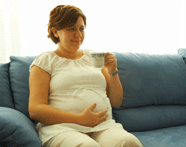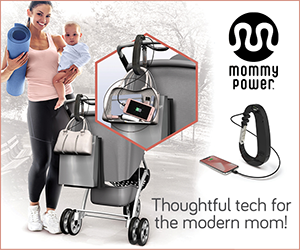Coffee Talk

Drinking too much coffee can increase your chances of having a miscarriage. Here’s what you need to know about limiting your caffeine intake during pregnancy.
The last thing any pregnant woman wants to hear is that there’s one more thing she should give up. But a new study published in The American Journal of Obstetrics and Gynecology found expecting mothers should monitor their caffeine intake.
The study followed more than 1,000 women throughout their pregnancies and found a substantial link between caffeine intake and miscarriage. This wasn’t the first study to find such a link, but it is getting more attention than past research. According to head researcher Dr. De-Kun Li, pregnant women who consume as little as 200 milligrams of caffeine per day can double their risk of miscarriage. What does this look like in your coffee mug? It depends on how you brew your java, but it’s not a lot. Starbucks’ smallest coffee–a tall–contains 300 milligrams of caffeine.
Why caffeine can cause problems
The San Francisco-based study found that caffeine might be dangerous to the developing fetus because it crosses the placenta. A fetus does not have a sufficient metabolic system to cope with the increase in heart rate that results from this jolt of caffeine. In severe cases, the result can be a spontaneous abortion. In less severe cases, caffeine can contribute to low birth weight. Because the risk of miscarriage is highest in the first three or four months, caffeine intake should be most strictly monitored during early pregnancy.
Cutting back on caffeine
Of course, it’s not just coffee moms-to-be should watch out for–caffeine is also found in chocolate, soft drinks, tea and hot chocolate. In light of the study, the March of Dimes now recommends that pregnant women limit their intake to 200 milligrams or less per day–so it makes sense to choose your caffeine sources wisely.
Ordering decaf whenever possible is the safest way to enjoy your coffee. When decaf doesn’t cut it, espresso-based drinks contain less caffeine than brewed coffee. (A tall Starbucks latte has just 90 milligrams of caffeine.) Green tea is a good choice with just 40 milligrams of caffeine in a tall cup–less than half the caffeine in black tea. As for chocolate, this is one time when milk wins out over dark. A three-ounce piece of milk chocolate has just 18 milligrams of caffeine, while the same size of dark chocolate contains 60 milligrams.
Nancy Ripton is a parenting journalist, mother and co-founder of justthefactsbaby.com The Canadian-based website provides new moms and moms-to-be with well-researched parenting information they never need to second-guess. Plus, a baby route map system guides you through the best baby-friendly spots in Toronto (more cities to come soon).




